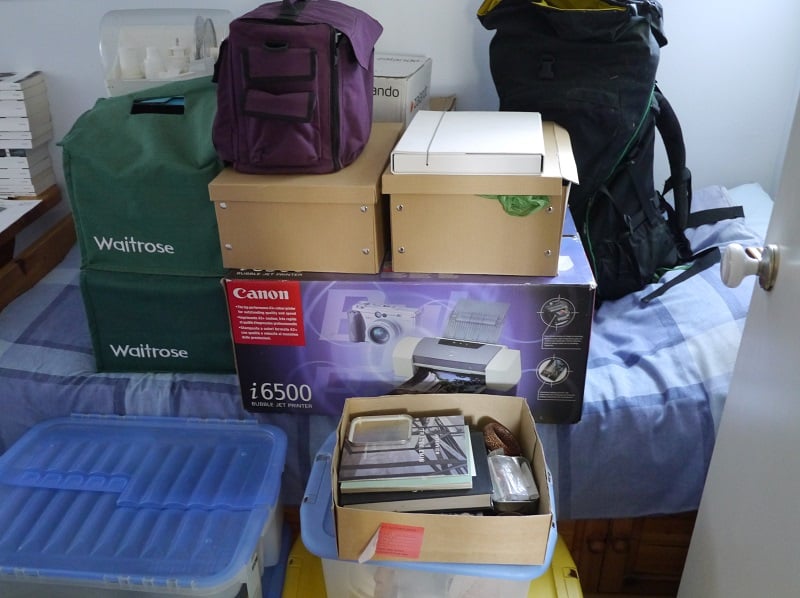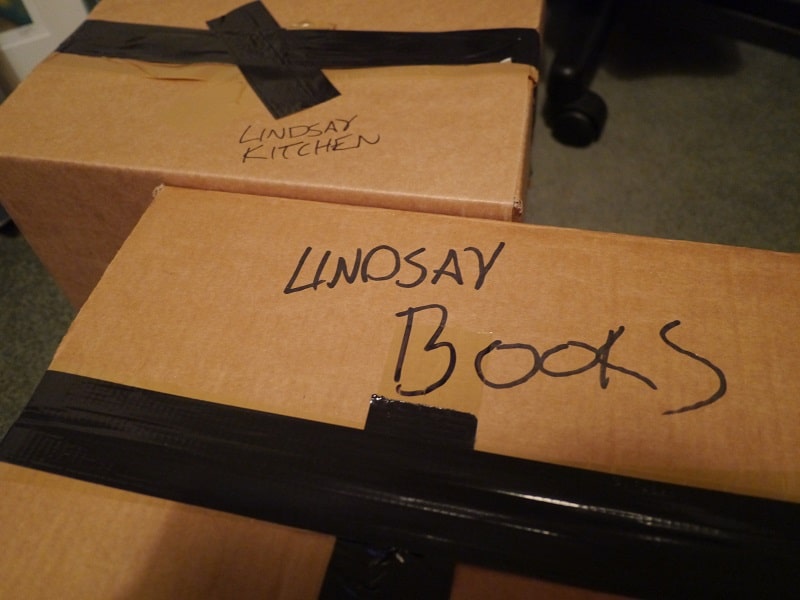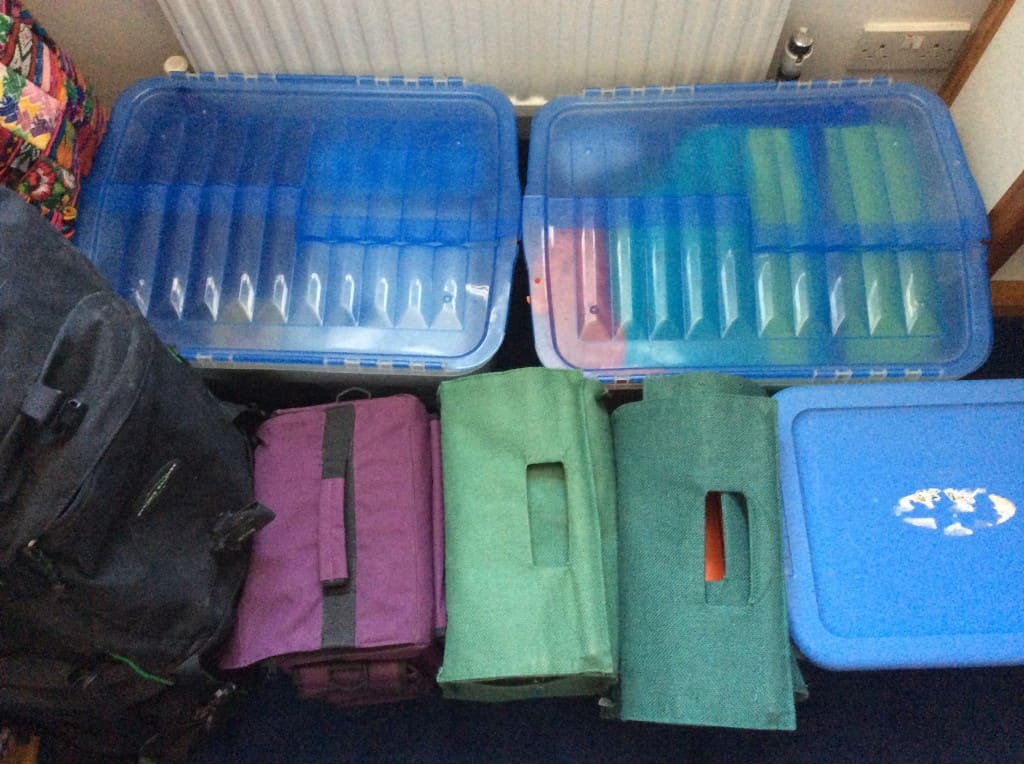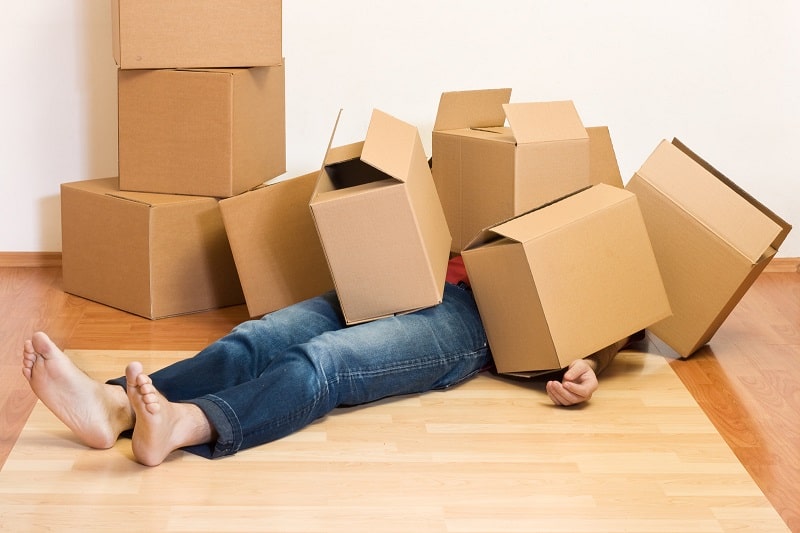Should Hoarders Get Second Chances?
Every time my parents read a blog post I’ve written about trying to minimalise, they have a good chuckle to themselves. “It’s easy to be a minimalist when you’ve just stored everything at your parents house!” they say.
When I moved to Australia almost three years ago, I sold and gave away many of my belongings. I had nowhere to store furniture; there was no need to keep trinkets and artifacts and stuff that wasn’t useful. But the stuff that might be useful? That was kept in boxes at my parents’ house until I had a better idea of what might happen next.
When I made the decision to go to Perth, I only had a one-year visa. After that, I wasn’t really sure what was going to happen, so I didn’t want to get rid of everything. I looked into shipping, but it’s expensive, and nothing was really worth taking the trouble to send across to the other side of the world. The boxes were happy enough in storage until I came back and could sort them out.
The boxes might have been happy, but my parents were less so. When I went back to visit in August, my parents want them sorted out. Which is fair enough. Their house is full of their own stuff (I think the tendency to hoard must be genetic), plus I have both a brother and sister who also, ahem, rely on the extra storage capacity of the family home.
The boxes were dragged out of storage and presented almost triumphantly to me.
“Call yourself a minimalist?!” my dad kept saying.
“Your blog is all lies!” he kept adding.
(Note – he doesn’t actually read my blog. If he did, as I keep pointing out, he’d know that I don’t say I am a minimalist, I say I’m trying to be one – and I’m still not very good at it!)
Here is the hoard:

Quite a hoard, I think you’ll agree – especially one for a (wannabe) minimalist!
That is a lot of boxes in storage for a minimalist.
The first one I opened was a box of jewellery. I thought I’d got rid of all of it when I left. I remember choosing what would fit in my suitcase, and leaving the rest behind, but I thought it had gone to the charity shop. I had no idea that it was still amongst my possessions!
It’s very strange, opening a box and finding things that you thought were gone. I remembered all of the things that were in the box once I saw them, but if you’d asked me what was in the box before I’d opened it, I would probably only have remembered half. Now the box is open, I find myself asking if I still like any of them? If I’d use them? If I should keep them? Yet minutes before, I thought they were gone and it didn’t need another thought.
I’ve been given a second chance. The problem is, I don’t need a second chance! Letting go of stuff is harder than we think and I really don’t want to go through that decision-making process again.
The other boxes were an assortment of things: camping gear, climbing equipment, kitchen stuff, trinkets (I thought I’d got rid of all of these!), hobby stuff, books, and photo albums. Some I remembered, most I didn’t.

If you had boxes like this in storage and it had been three years since you packed them, would you even open them? Or would you assume that you couldn’t possibly need the contents, and give the contents away?
Some things were easy to sort. The jewellery, something I rarely wear anyway, was neatly sorted and packaged for the charity shop. The hammock that I bought in Mexico and have never used as I have never had anywhere to hang it (and I went to Mexico in 2004, so that is a long time in storage!) was ditched. In fact, the charity shop got quite a hoard.
Some things I was able to sell. My Magimix food processor is currently for sale on eBay – there’s just no point keeping it in storage. I was hoping my parents might use it, but after three years, if they were going to, they would have by now! At least if I sell it, it will remain useful.
Some things fitted in my suitcase. I’d packed the minimum I could on the way over in preparation for bringing back things I thought I might use.
As always, the things I struggle to get rid of are the things I know I can’t pass on or sell, but I know are still useful. Kitchen things that are too battered to be passed on, but still functional and I know I could continue to use them for a long time. Climbing gear that I would like to dust off and use again sometime. Books that I like, but were too heavy to fit in the suitcase. Photo albums that I contemplated getting rid of, but everyone else said I should keep! Surely you should never discourage a hoarder who wants to get rid of something?!
Despite her wish for me to finally rid their house of all my stuff, my mother tells me it’s okay, I can leave it there. (What can I say? Hoarding is genetic!)
This is what remains:

Everything that remains. Fortunately my intention to declutter is still there too : ) It’s a work in progress…
I’m not proud. That is clearly far too much stuff in storage. It is a step in the right direction, though: this pile is half of what was there when I started, and I’m pleased about that. I truly believe that decluttering only works when we continue to chip away at it. I’d love to be able to do it in an instant; to spend two hours and rid all the unnecessary clutter from my life. Experience has taught me that it doesn’t work like that!
So what next, for all this stuff? Well, I have a wildcard. My parents are coming to Australia in a couple of months, and I’m hoping there will be the opportunity to bring some more bits and pieces with them. That will also give me two months to let go and decide to ditch the rest. I hope I can do it!
Hoarders shouldn’t get second chances. They definitely shouldn’t get third and fourth chances!
What do you think of my decluttering attempt? Do you have anything in storage at family or friends’ places, or have you taken some responsibility for your stuff (unlike me)?! Do you have boxes packed away and you don’t even know what’s inside? Have you got any tips to offer or experiences to share? I’d love to hear from you so please leave a comment below!
[leadpages_leadbox leadbox_id=1429a0746639c5] [/leadpages_leadbox]




